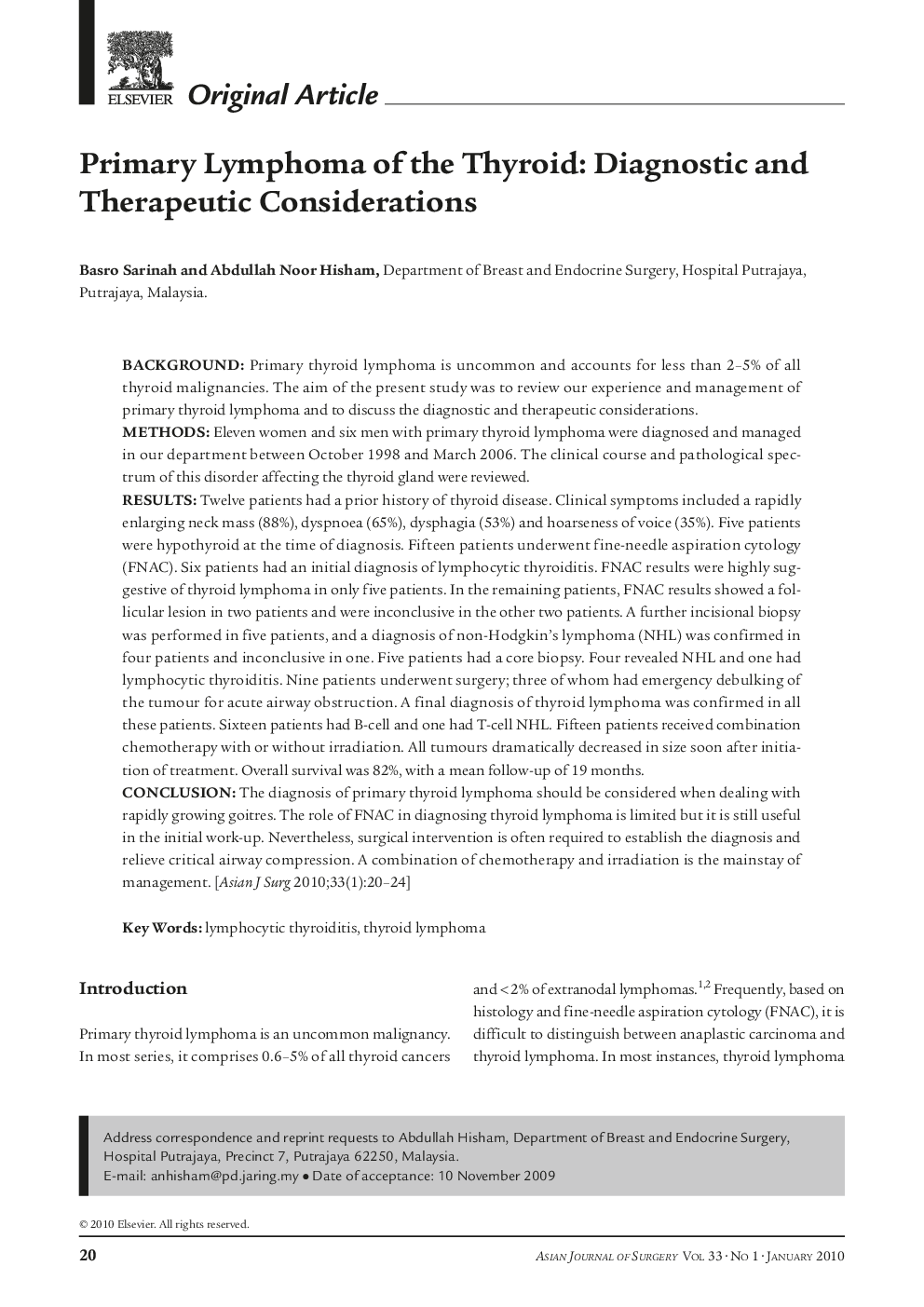| Article ID | Journal | Published Year | Pages | File Type |
|---|---|---|---|---|
| 4282703 | Asian Journal of Surgery | 2010 | 5 Pages |
BackgroundPrimary thyroid lymphoma is uncommon and accounts for less than 2–5% of all thyroid malignancies. The aim of the present study was to review our experience and management of primary thyroid lymphoma and to discuss the diagnostic and therapeutic considerations.MethodsEleven women and six men with primary thyroid lymphoma were diagnosed and managed in our department between October 1998 and March 2006. The clinical course and pathological spectrum of this disorder affecting the thyroid gland were reviewed.ResultsTwelve patients had a prior history of thyroid disease. Clinical symptoms included a rapidly enlarging neck mass (88%), dyspnoea (65%), dysphagia (53%) and hoarseness of voice (35%). Five patients were hypothyroid at the time of diagnosis. Fifteen patients underwent fine-needle aspiration cytology (FNAC). Six patients had an initial diagnosis of lymphocytic thyroiditis. FNAC results were highly suggestive of thyroid lymphoma in only five patients. In the remaining patients, FNAC results showed a follicular lesion in two patients and were inconclusive in the other two patients. A further incisional biopsy was performed in five patients, and a diagnosis of non-Hodgkin's lymphoma (NHL) was confirmed in four patients and inconclusive in one. Five patients had a core biopsy. Four revealed NHL and one had lymphocytic thyroiditis. Nine patients underwent surgery; three of whom had emergency debulking of the tumour for acute airway obstruction. A final diagnosis of thyroid lymphoma was confirmed in all these patients. Sixteen patients had B-cell and one had T-cell NHL. Fifteen patients received combination chemotherapy with or without irradiation. All tumours dramatically decreased in size soon after initiation of treatment. Overall survival was 82%, with a mean follow-up of 19 months.ConclusionThe diagnosis of primary thyroid lymphoma should be considered when dealing with rapidly growing goitres. The role of FNAC in diagnosing thyroid lymphoma is limited but it is still useful in the initial work-up. Nevertheless, surgical intervention is often required to establish the diagnosis and relieve critical airway compression. A combination of chemotherapy and irradiation is the mainstay of management.
